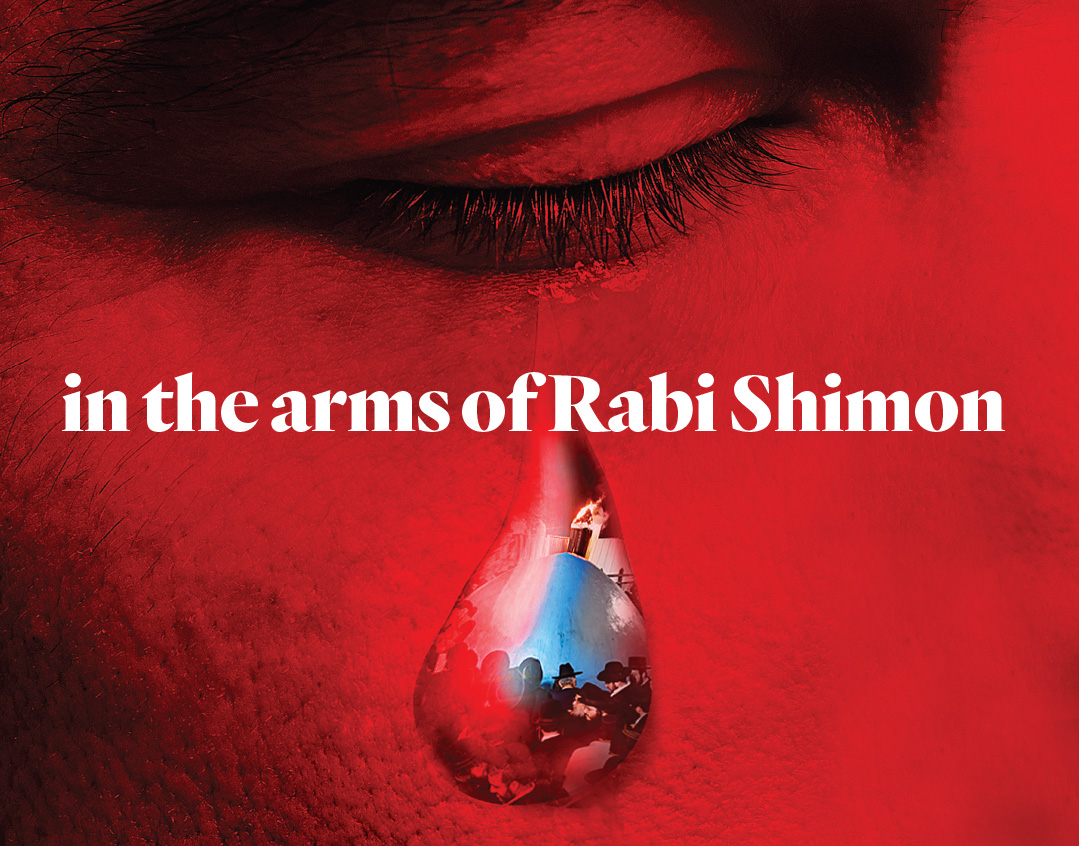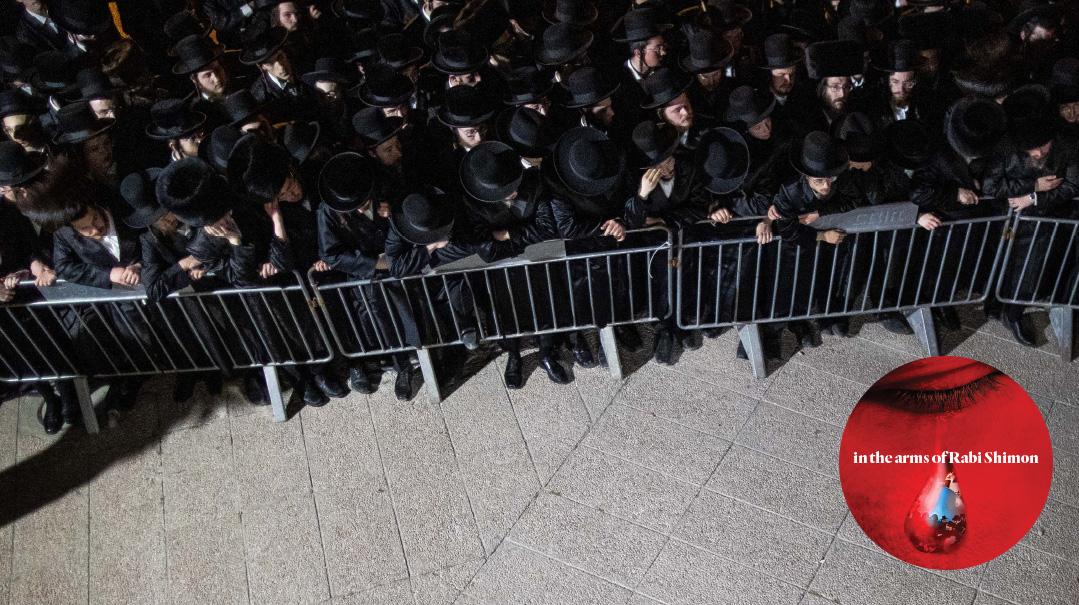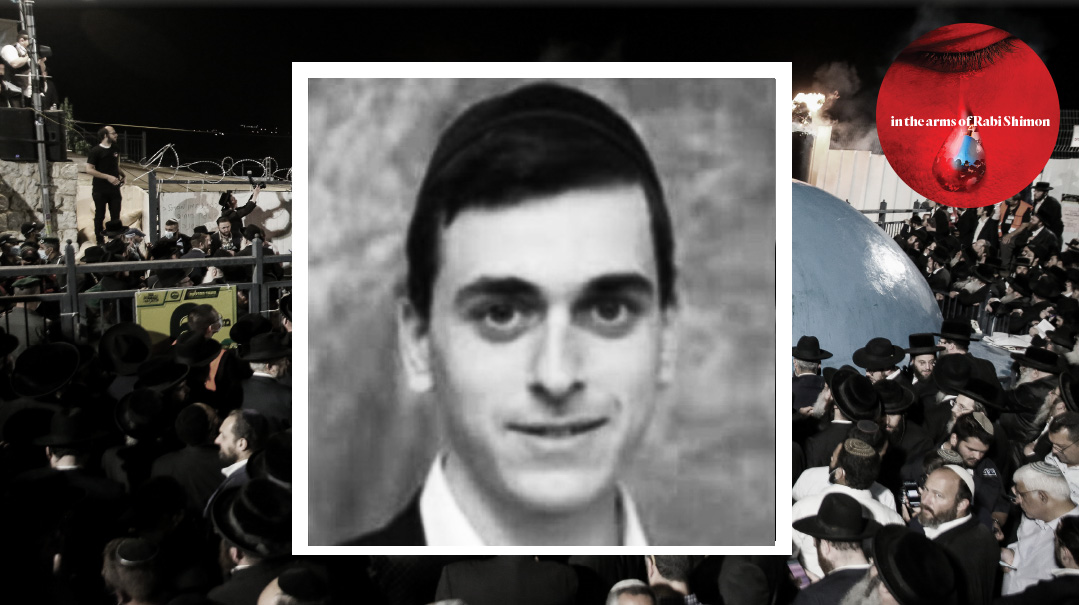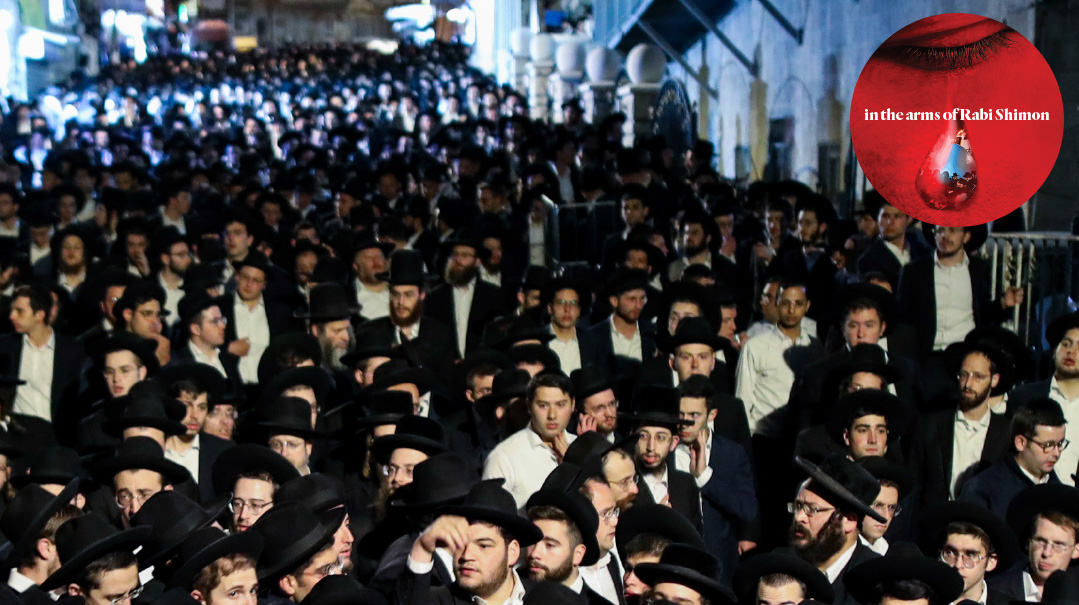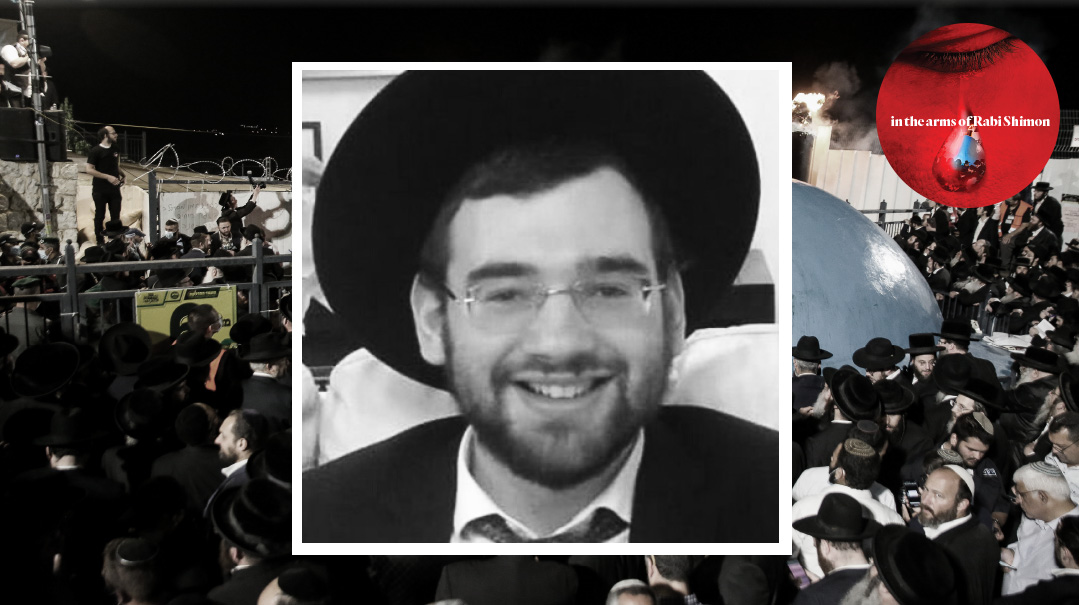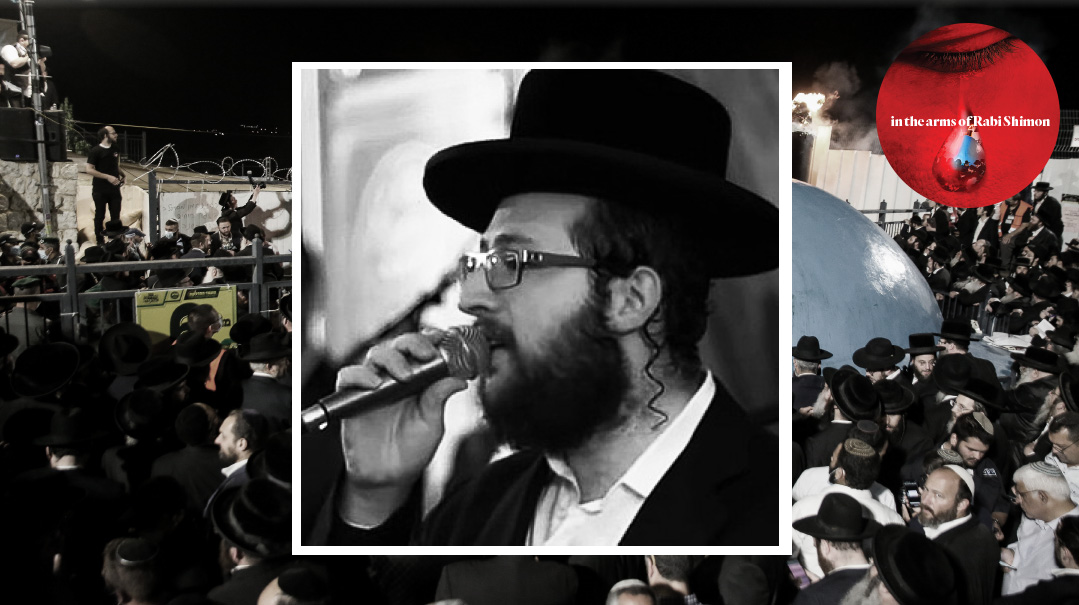Just Hold the Pain
| May 4, 2021When the pain is unbearable, we know that it’s only Hashem’s existence and mercy that can fill that void, that “makom”
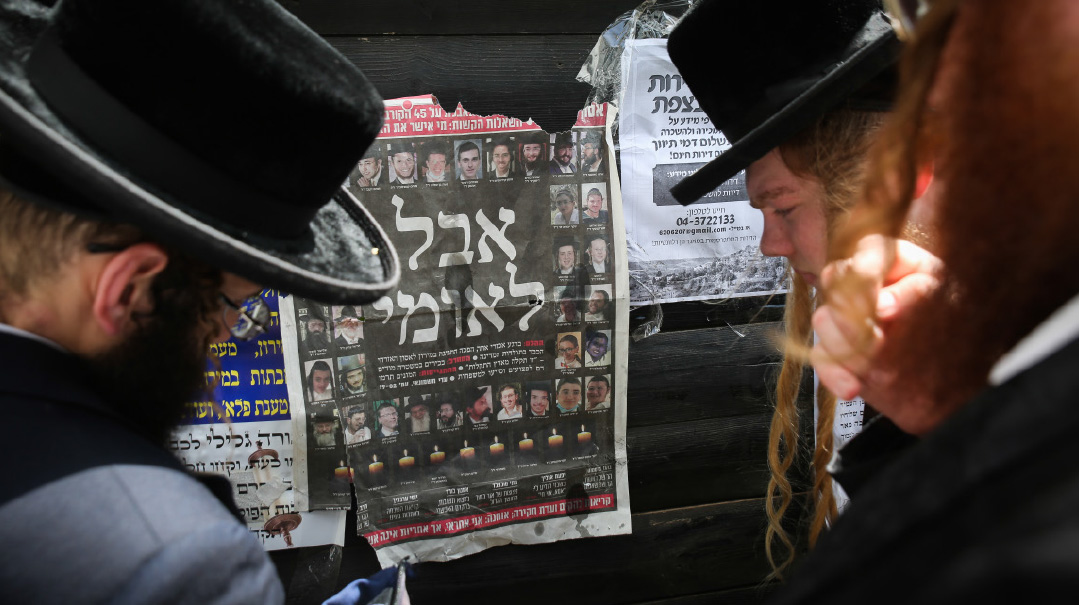
What is there to say?
Nothing. Please nothing.
I remember sitting shivah for my father 16 years ago. I was 11 years old. We were 13 children, most of us unmarried, the youngest two months old. It wasn’t an easy shivah to attend. People came and said some of the stupidest things I’ve heard in my life. I remember one mashpia who called me on the phone and exclaimed, “Chaim Ozer, mazal tov!”
“What for?” I asked, taken aback.
“You got a new father,” he answered.
“Im yirtzeh Hashem by you…” I retorted. My sister, then a young teenager, had her share too. A teacher told her, “Some people have memories of their fathers old and weak and senile, but you’ll always remember your father with a black beard!”
I know that people don’t mean to be silly. They just don’t have what to say. What can you possibly say in the face of tragedy? How can you make sense of madness? How can you find a glimmer of light and hope, perhaps some positivity, in enormous darkness?
The truth: You can’t. It’s a recipe for stupidity.
It’s not about you. You don’t have to make sense of tragedy. Chazal teach us that “agra d’bei tamia shtikusa — the merit of visiting a shivah home is the silence.” Just sit there and weep, immerse yourself in the sorrow and loss. It’s not about making it better or finding hope, it’s about feeling the pain.
I know this might upset some people, but I’ll take this further. The casualty count was rising, and I was experiencing what probably were the saddest moments in my life, and probably yours too, when a well-intentioned bochur approached me and inquired, with tears in his eyes, what should we be mekabel, what can we change.
My answer was nothing.
Now is the time to just absorb the pain. When Hatzolah is doing CPR and bodies are piling up isn’t the time to alleviate the agony by consoling yourself that you did something about this. It’s not about you.
There was once a fire in the home of the Zeide, Reb Mottele of Hornisteipel. His home and all his belongings went up in smoke, along with his most valuable possession: a manuscript on Gittin that he’d worked on for years, a project of long days and sleepless nights. After being informed of the loss, he was quiet for long moments in deep sad meditation. Only after a while did he get up and proclaim his acceptance of Hashem’s judgment.
A talmid standing nearby was surprised that his rebbe hadn’t simply been mekabel b’ahavah. Reb Mottele explained, “First one has to feel the pain and face the judgment, only afterward can we accept it b’ahavah.”
It’s not easy to live with such tragedy. It’s natural to want to find meaning in the face of such disaster. And that’s okay, and moreover, it’s what makes us special. But let’s wait a little bit.
For now, perhaps, let’s sit quietly and feel the pain. The pain of mothers who buried two children, passing by their bedrooms and hoping that it’s all a nightmare, the pain of young wives who are still washing their husband’s laundry from a few days ago, tears rolling down their faces as they fold, and the pain of countless brothers and sisters, sons and daughters, friends and neighbors, whose lives were shaken to the very core.
We will have an opportunity to reflect on what it means for us. We will eventually move on. But there’s no reason to rush. Nothing will happen if our routine is shaken up for a few days, if we don’t meet with friends, don’t go back to life, don’t move on. Not yet.
I sat with the bochur and we wept. There were no names or pictures, we didn’t know ages or community affiliations, there was no one to blame and no excuses, and we simply sat and held each other’s hand and cried.
We say to the mourning “HaMakom yenachem,” I told him, for every loss pierces a hole in the heart of a loved one, a hole that cannot be filled by anyone else. When the pain is unbearable, we know that it’s only Hashem’s existence and mercy that can fill that void, that “makom.”
When we sit bewildered and our hearts bleed with pain for children and young fathers we never knew, we are united in that makom. Let’s not rush out of there. Let’s not move on so quickly. There’s no other place where we can survive now.
Rabbi Chaim Ozer Geldzahler studies in the Institute for Dayanim in Yerushalayim and teaches at The Chaburah.
(Originally featured in Mishpacha, Issue 859)
Oops! We could not locate your form.







